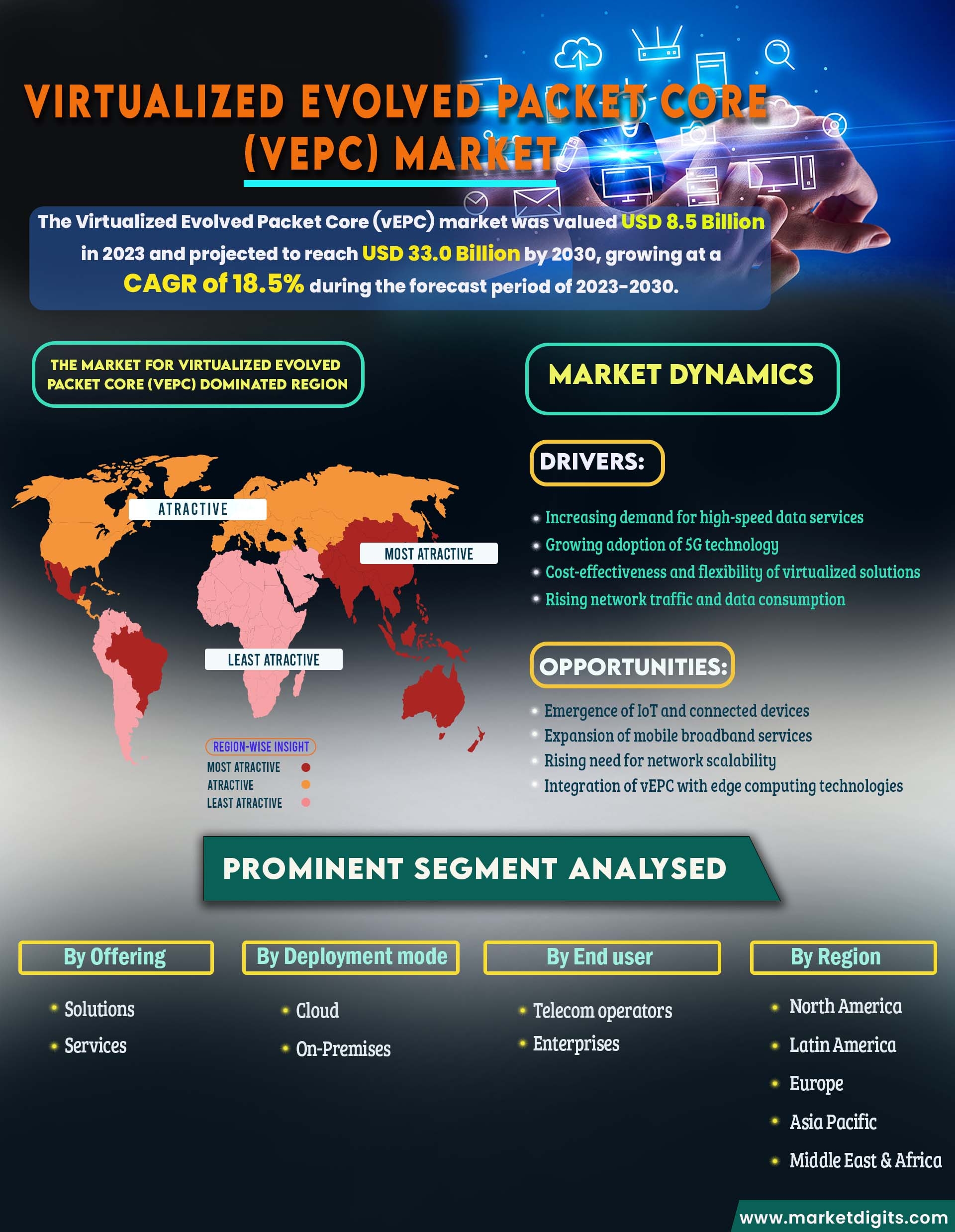 The Virtualized Evolved Packet Core (vEPC) is a crucial component in modern mobile networks, particularly for 4G LTE and emerging 5G technologies. By virtualizing the core network functions, vEPC allows network operators to achieve greater flexibility, scalability, and resource efficiency. Traditional Evolved Packet Core (EPC) systems relied on dedicated hardware, which was costly and inflexible. In contrast, vEPC leverages Network Functions Virtualization (NFV) to decouple network functions from proprietary hardware, enabling them to run on standard commercial off-the-shelf (COTS) servers. This shift reduces capital and operational expenditures while allowing for rapid deployment and scaling of network services to meet varying demands. vEPC supports a wide range of services, including voice, data, and multimedia, by integrating functions such as the Mobility Management Entity (MME), Serving Gateway (SGW), and Packet Data Network Gateway (PGW) into a virtualized environment. This integration enhances network performance, reduces latency, and improves user experience. Additionally, vEPC facilitates the deployment of new services and applications, such as IoT and edge computing, by providing a more agile and programmable network infrastructure. Overall, vEPC represents a significant advancement in mobile network architecture, driving the evolution towards more efficient and adaptable networks.
The Virtualized Evolved Packet Core (vEPC) is a crucial component in modern mobile networks, particularly for 4G LTE and emerging 5G technologies. By virtualizing the core network functions, vEPC allows network operators to achieve greater flexibility, scalability, and resource efficiency. Traditional Evolved Packet Core (EPC) systems relied on dedicated hardware, which was costly and inflexible. In contrast, vEPC leverages Network Functions Virtualization (NFV) to decouple network functions from proprietary hardware, enabling them to run on standard commercial off-the-shelf (COTS) servers. This shift reduces capital and operational expenditures while allowing for rapid deployment and scaling of network services to meet varying demands. vEPC supports a wide range of services, including voice, data, and multimedia, by integrating functions such as the Mobility Management Entity (MME), Serving Gateway (SGW), and Packet Data Network Gateway (PGW) into a virtualized environment. This integration enhances network performance, reduces latency, and improves user experience. Additionally, vEPC facilitates the deployment of new services and applications, such as IoT and edge computing, by providing a more agile and programmable network infrastructure. Overall, vEPC represents a significant advancement in mobile network architecture, driving the evolution towards more efficient and adaptable networks.
Cerca
Categorie
- Politics
- Home
- Wellness
- Theater
- Sports
- Shopping
- Religion
- Party
- Altre informazioni
- Networking
- Music
- Literature
- Art
- Health
- Gardening
- Giochi
- Food
- Fitness
- Film
- Drinks
- Dance
- Crafts
- Causes
Leggi tutto
Career & Education Counselling Market Up-To-Date Development Data And Industry Trends Forecast From 2024 to 2031 | Collegedunia, Amindset, Upgrade Education, SetMyCareer
Career & Education Counselling Market report has recently added by Analytic Insights Hub...
The Timeless Elegance of Indian Gold Chains for Men: A Symbol of Tradition and Style
Gold has always been a symbol of wealth, power, and prosperity in many cultures...
Why Everyone’s Switching to Softgel Capsules — The Supplement Industry’s Best-Kept Secret
If you’ve ever struggled to swallow a chalky tablet or wondered whether your supplements...
How SBS Expedited Services is Redefining Transportation Services in Canada
Canada’s vast geography demands a robust and reliable transportation network. From coast to...
Aluminum Alloys for Aerospace Market Report: Future Demand & Analysis 2032
The global aluminum alloys for aerospace market is experiencing significant growth, driven by...

